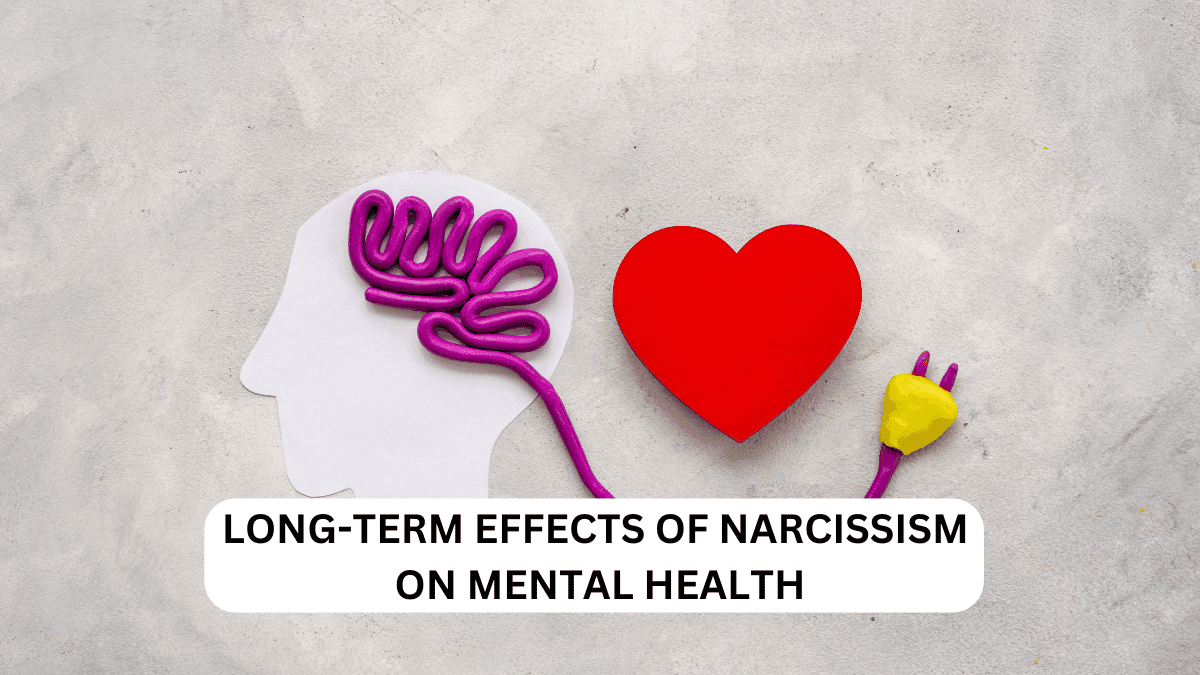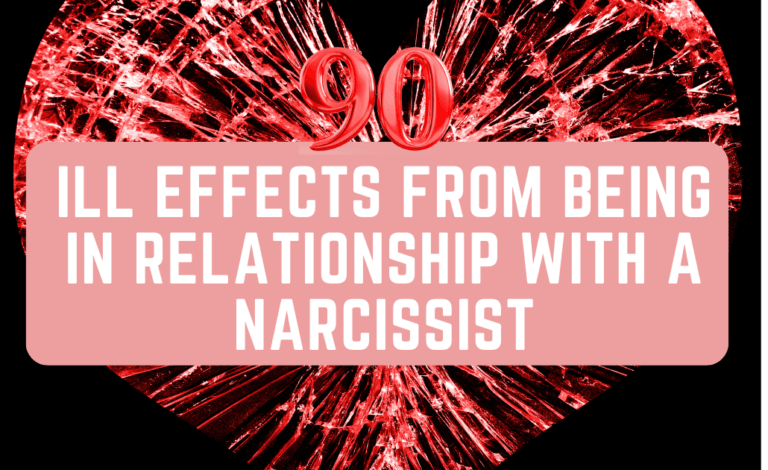7 Negative Long-Term Effects of Narcissism on Mental Health: Understanding the Lasting Impact
Effects of Narcissism
Narcissism can have a deeply negative and lasting impact on mental health, not only for the narcissist but also for those close to them, such as family members, friends, and romantic partners. Recognizing these effects is crucial for addressing the psychological damage caused by narcissistic behaviors and for beginning the healing process. Here are seven key long-term effects of narcissism on mental health:
Related: Do Boundaries Really Work with Narcissists? Learn Effective Strategies
Related: Why Narcissists Struggle with Empathy: Understanding the Science Behind their Behavior
Related: Understanding Why Narcissists Create Chaos
Related: You Must Protect Yourself from Their Emotional Manipulation, Learn Strategies
1. Chronic Anxiety and Stress
Narcissistic relationships often create environments filled with tension, instability, and emotional upheaval. Those who live with or interact regularly with narcissists are more likely to experience chronic anxiety and stress. Narcissists’ manipulation, mood swings, and demands for control can leave others walking on eggshells, never knowing when the next conflict will arise.
Impact:
Living under constant stress takes a toll on both mental and physical health, leading to conditions such as insomnia, headaches, and digestive problems. In extreme cases, chronic stress can contribute to serious conditions like heart disease or depression.
Solution:
Developing self-care routines, practicing mindfulness, and learning stress management techniques can help alleviate the long-term effects of chronic stress. Seeking professional counseling is also beneficial for learning how to navigate and set boundaries in narcissistic relationships.
2. Low Self-Esteem and Self-Doubt
Individuals who have been subjected to narcissistic behavior over a prolonged period often experience a significant decline in self-esteem. Narcissists frequently belittle and devalue those around them, leading to a constant feeling of inadequacy and self-doubt. Over time, this can erode a person’s sense of self-worth.
Impact:
Low self-esteem can result in difficulties in relationships, career setbacks, and an overall lack of confidence. These individuals may find it challenging to assert themselves, fearing judgment or rejection.
Solution:
Rebuilding self-esteem involves self-reflection, identifying strengths, and setting realistic goals. Therapy, support groups, and positive affirmations can help boost self-worth and rebuild confidence after experiencing narcissistic abuse.
3. Depression and Hopelessness
The toxic dynamics created by narcissists often leave others feeling trapped, hopeless, and helpless. The constant manipulation, gaslighting, and emotional abuse can drain individuals of their joy, optimism, and energy, eventually leading to depression.
Impact:
Depression caused by narcissistic relationships can manifest as feelings of hopelessness, low energy, difficulty concentrating, and withdrawal from social activities. In severe cases, it may lead to suicidal thoughts or actions.
Solution:
Recognizing the signs of depression and seeking professional help is critical. Therapy, medication, and lifestyle changes such as exercise, mindfulness, and reconnecting with supportive relationships can help manage and alleviate depressive symptoms.
4. Difficulty Trusting Others
Narcissists often use tactics like gaslighting, betrayal, and manipulation, which can severely damage their victims’ ability to trust others. After enduring repeated emotional or psychological abuse, individuals may struggle to open up or form new relationships due to fear of being hurt or deceived again.
Impact:
Difficulty trusting others can lead to isolation, loneliness, and an inability to build deep, meaningful relationships. These individuals may become overly guarded, emotionally detached, or overly dependent on unhealthy relationships.
Solution:
Rebuilding trust takes time and patience. Slowly re-engaging in relationships with trusted friends or loved ones and working with a therapist to address trust issues can help individuals regain confidence in their ability to connect with others.
5. PTSD and Emotional Flashbacks
In severe cases, prolonged exposure to narcissistic abuse can result in post-traumatic stress disorder (PTSD) or complex PTSD (C-PTSD). Those affected may experience emotional flashbacks, where they relive traumatic moments from the past. These flashbacks can be triggered by situations that remind them of their abuser.
Impact:
PTSD and emotional flashbacks cause significant distress, making it difficult for individuals to function in daily life. Symptoms such as hypervigilance, anxiety, nightmares, and intrusive thoughts can disrupt sleep, work, and relationships.
Solution:
Treatment for PTSD often involves trauma-focused therapy, such as cognitive-behavioral therapy (CBT) or eye movement desensitization and reprocessing (EMDR). Mindfulness, meditation, and grounding techniques can also help manage symptoms.
6. Codependency and People-Pleasing Behaviors
Many individuals who have been in relationships with narcissists develop codependent tendencies. They may become overly focused on meeting the needs of the narcissist, neglecting their own well-being in the process. This dynamic can lead to people-pleasing behaviors, where the individual constantly seeks validation and approval from others to feel worthy.
Impact:
Codependency can lead to burnout, resentment, and difficulty maintaining healthy boundaries. These individuals may struggle to prioritize their own needs, becoming overly reliant on others for emotional fulfillment.
Solution:
Healing from codependency requires learning how to set boundaries, practicing self-care, and focusing on personal growth. Therapy and support groups for codependency can provide tools for breaking free from unhealthy relationship dynamics.
Lasting Mental Health Effects of Narcissism
| Effect | Description |
|---|---|
| Chronic Anxiety | Persistent stress and tension from narcissistic relationships can lead to long-term anxiety. |
| Low Self-Esteem | Constant criticism and belittling from narcissists erode self-worth and confidence. |
| Depression | Narcissistic abuse can cause feelings of hopelessness and deep depression. |
| Trust Issues | Betrayal and manipulation from narcissists can create difficulties trusting others. |
| Codependency | People exposed to narcissists may develop people-pleasing behaviors and lose themselves in codependent relationships. |
7. Emotional Detachment and Numbness
Over time, individuals who have been subjected to narcissistic abuse may develop emotional detachment as a defense mechanism. To protect themselves from further pain, they may become numb to their own emotions or the emotions of others. This emotional detachment can make it difficult to connect with others and experience genuine feelings of joy, love, or empathy.
Impact:
Emotional numbness can lead to feelings of disconnection, isolation, and difficulty forming or maintaining close relationships. It may also result in a lack of fulfillment or purpose in life.
Solution:
Reconnecting with emotions through therapy, creative expression, and mindfulness practices can help individuals begin to feel again. Building safe and supportive relationships can also provide a sense of connection and emotional healing.
Effects of Narcissism Effects of Narcissism Effects of Narcissism Effects of Narcissism Effects of Narcissism Effects of Narcissism Effects of Narcissism Effects of Narcissism Effects of Narcissism Effects of Narcissism








